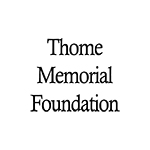

The development and validation of effective therapies to prevent vision loss associated with late stage age-related macular degeneration (AMD) is hindered by a lack of knowledge regarding the genetic and phenotypic parameters associated with progression from the early and intermediate to late stages. Only primates have a macula and no accepted model of AMD exists in non-human primates, so only extensive, in-depth analysis of the clinical phenotype in a patient can elucidate the disease course. This project uses advanced high resolution adaptive optics (AO) imaging methods to assess the temporal sequence of changes at the cellular level to define how the disease progresses from intermediate to late-stage AMD. We are working to determine the sequence of cellular changes in both cross sectional and short longitudinal studies of patients with intermediate AMD and those transitioning to the earliest stages of geographic atrophy, a form of late-stage of AMD. We combine this high resolution structural data with information from common clinical tools and are performing genetic testing on patients so that our results can be correlated with genotype and clinical phenotype. Our focus is directed to the microscopic cellular level events that are associated with pigmentary changes, drusen, cellular infiltrates and early sub-clinical lesions, and in particular, how they transition to the atrophy that causes severe vision loss in late stage AMD. Our hypothesis is that we will be able to identify specific biomarkers that characterize different phenotypes (and possibly associated genotypes) in AMD with multicellular high-resolution imaging that may correlate with short and long-term progression patterns. Ultimately, we aim to assign prognostic significance to these findings in order to initiate a larger cohort longer longitudinal follow-up study to evaluate our predictions. This work will allow us to better classify patients for future trials and treatments that may be tailored to specific genotypes/phenotypes and will provide essential biomarkers for evaluating their efficacy.
This project is supported by a grant from the Edward N. & Della L. Thome Memorial Foundation to Dr. José-Alain Sahel and supplemented by Dr. Rossi’s startup funds from the University of Pittsburgh Department of Ophthalmology and by the University of Pittsburgh Department of Ophthalmology core grant from the National Eye Institute.
Want to learn more about age-related macular degeneration? Please click the link here: Age Related Macular Degeneration (AMD)

